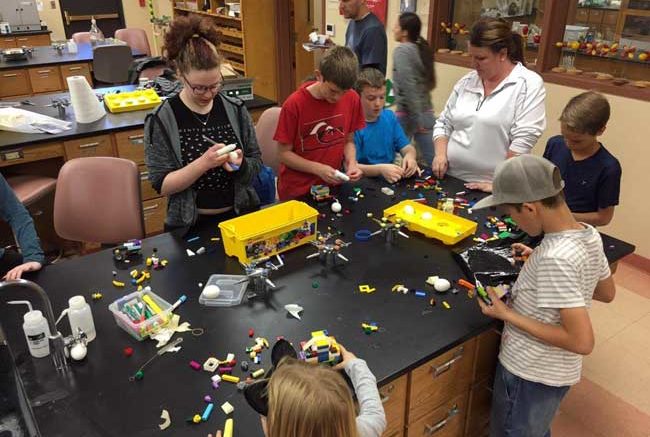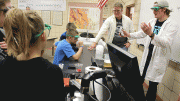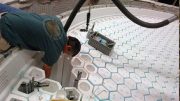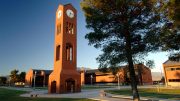By Lori Dugan
Thatcher — As part of Eastern Arizona College’s ongoing mission and purpose to provide services which meet the community’s diverse cultural and economic needs, as well as activities and programs which promote general student welfare and foster life-long learning, the college has recently entered into a new partnership to bring STEM (Science, Technology, Engineering and Mathematics) education and activities to its service area.
Rural Activation and Innovation Network (RAIN) is a project that supports STEM activities and events in rural Arizona through a grant from The National Science Foundation. Graham and Greenlee’s counties combined are one of only four rural regions across Arizona to receive $50,000 per year in a four-year community education project. The funds will be used to enhance current STEM events in the region and provide grant opportunities of up to $500 to educators and groups to promote new and innovative STEM activities.
The project is spearheaded by Arizona State University, Arizona Science Center, and directed locally by Eastern Arizona College’s Dr. Phil McBride, Dean of Instruction, and a committee of local community leaders to develop STEM education projects and experiences for community members of all ages in our region.
The committee of local community leaders, known as the Graham and Greenlee Regional Innovation Committee (GGRIC) is comprised of members affiliated with local school districts, Eastern Arizona College, local libraries, First Things First, Graham and Greenlee County Chambers of Commerce, Mt. Graham Regional Medical Center, and local industry and small businesses.
GGRIC is working to increase public awareness and dialog about local STEM education assets, resources, and opportunities to foster a STEM-related identity for the community and to provide activities to interest and engage children, families, and organizations in STEM fields leading to real-world applications and local career opportunities.
“The main goal of the Graham and Greenlee Regional Innovation Committee of RAIN is to connect and create a network of community members and local businesses and experts to participate in impactful activities to strengthen the community and inspire our youth towards STEM related education and careers,” said McBride.
Several upcoming events are being scheduled for the community to enjoy:
September 29-30: A family event at the annual Salsa Fest demonstrating the pH balances of different salsas – does pH tell how hot it is?
October 5-8: A family activity displaying the properties of probability, speed, acceleration, and velocity.
November: Enjoy a STEM play at Eastern Arizona College. What’s a STEM Play? Come and find out.
December: Hands-on Fun! at the “Family Science Day” at the Pima Children’s Museum.
January: The Race for DNA, a historical documentary film about saving lives.
February 22-24: Third annual Gila Valley Health and STEAM Festival with hands-on activities to explore STEAM = Science, Technology, Engineering, Art, and Mathematics.
March: Take a Hike! Examine our area through the eyes of a geologist and biologist with the Gila Valley Hiking Club.
April: Duncan Festival under the Stars
Look for more information about GGRIC and RAIN programs at your next community event and “like” RAIN on Facebook at https://www.facebook.com/
“Please tag all your friends who are local teachers and administrators when you visit the Facebook page,” said McBride. “We want to use all our avenues to provide information on grants, professional development opportunities, and assistance in hosting a community STEM event.”
For more information about EAC, STEM, STEAM, GRICC or RAIN, contact EAC Discovery Park Campus Director and representative for these partnerships, Paul Anger, at paul.anger@eac.edu.













